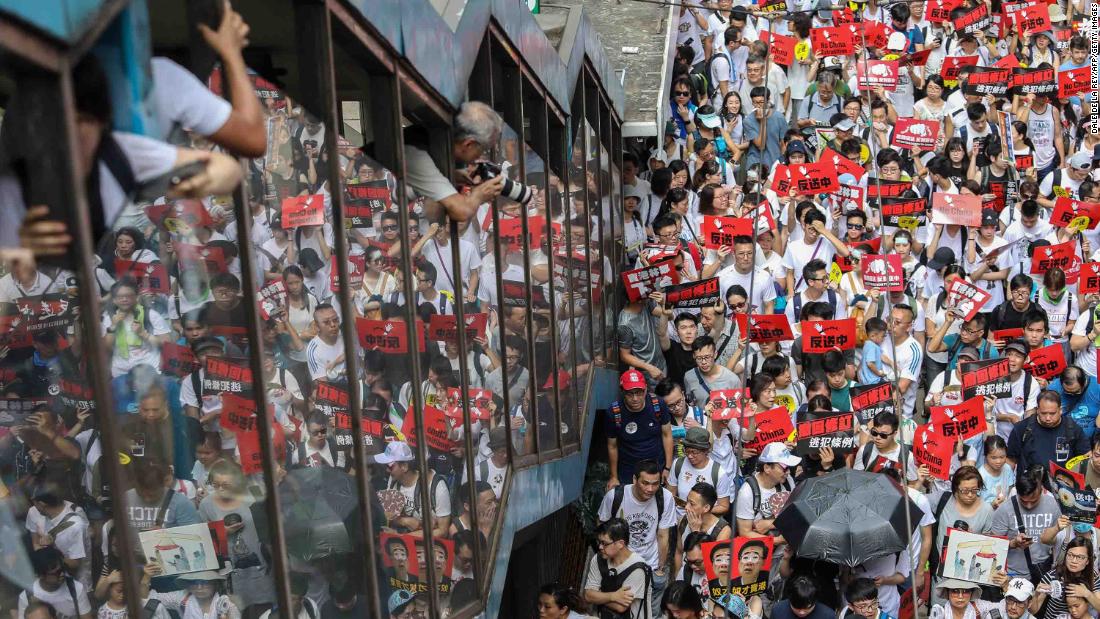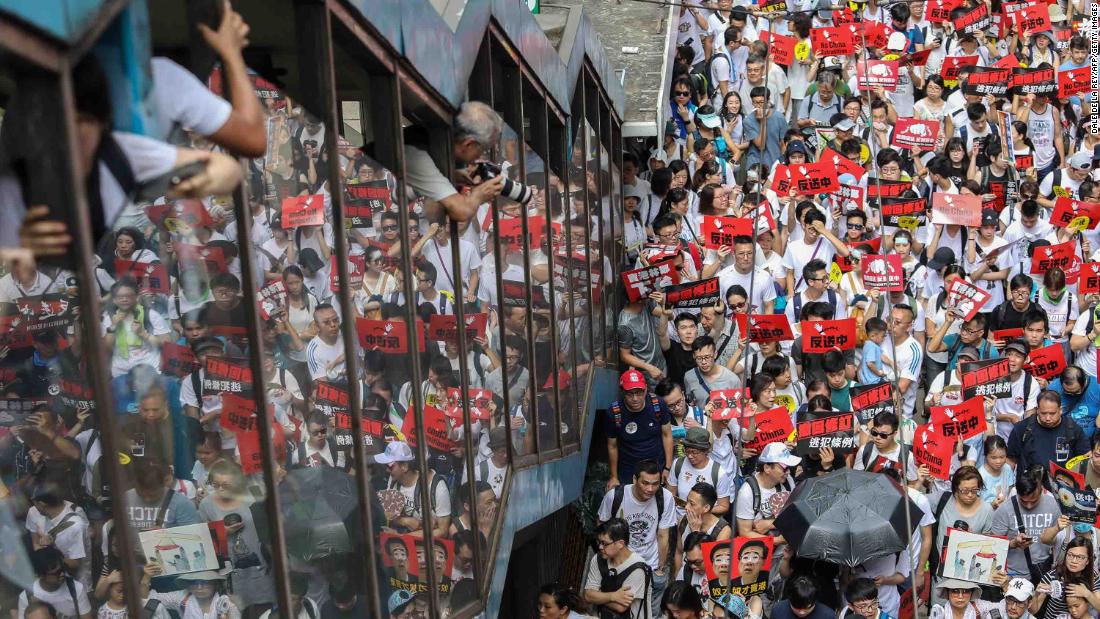
Hong Kong suspends controversial extradition bill after mass protests

Hong Kong (CNN)Hong Kong will suspend a controversial China extradition bill, its leader said Saturday, in an apparent bid to quell further unrest and mass demonstrations throughout the semi-autonomous Chinese city.
“We have made many attempts to narrow differences and eliminate doubts,” Lam said. “In the last week, tens of thousands of people took part in protests and gatherings. Serious conflicts broke out … resulting in a number of police officers, media workers and other members of the public being injured. I am saddened by this.”
She added that in suspending the bill she hoped the government could “restore calmness” to society. Failure to do so would “deal another blow to the society,” Lam said.
The announcement follows violent clashes between police and protesters Wednesday, after tens of thousands of mostly young people surrounded the city’s government headquarters, forcing legislators to postpone a debate on the bill.
They were just the latest in a series of public protests against the bill, which critics fear could be used to extradite residents to mainland China for political or inadvertent business offenses.
On June 9, more than one million people took to the streets in a peaceful march against the legislation, about one in seven of the city’s population — a potential repeat of that demonstration is planned for this Sunday.
Speaking in advance of Lam’s press conference, a spokesman for the Civil Human Rights Front confirmed to CNN that the march would go ahead even if the bill is paused. In a statement, the Democratic Party said the march would start at 2:30pm local time Sunday in Victoria Park. Protesters will wear black and demand the bill be completely withdrawn and Lam step down.
‘Deep regret’
Addressing the media, Saturday, Lam blamed herself for failure to communicate effectively to the public. She said the original driving force of the bill was a murder case in Taiwan, in which the alleged perpetrator, a Hong Kong man, fled to the city. That case, Lam said, highlighted “loopholes” in the current law with regards to Greater China.
“As a responsible government we needed to find a solution to deal with this murder case (and) give justice to the family,” Lam said.
However, Taipei said earlier this month it would not seek the man’s extradition based on the bill, which it said put Taiwanese citizens at risk, removing any urgency for Hong Kong lawmakers to change the law.
While she said the “original purpose of the bill is correct in my mind,” Lam added that “our communication has not been adequate.”
“I feel deep sorrow and regret that the deficiencies in my work and other factors has stirred up deep dissatisfaction and controversies in society,” Lam said, adding that she and her team would “adopt the most sincere and humble attitude” in future.
The climbdown over the bill will raise questions over Lam’s future. Before she became Chief Executive in 2017, Lam said she would resign “if mainstream opinion makes me no longer able to continue the job.”
Legal concerns
Although Hong Kong is part of China, it has a different legal system — a concept known as “one country, two systems.”
Pro-democracy figures said that the bill, championed by the pro-Beijing Lam government, would lead to the erosion of civil rights in Hong Kong, including freedom of speech and rule of law.
“We are afraid that we will become a mainland city,” lawmaker Fernando Cheung said Thursday. “We would no longer have rule of law, our own autonomy.”
Throughout the debate Lam has maintained that the bill is necessary to ensure that Hong Kong does not become a sanctuary for fugitives running from justice in mainland China.
Hong Kong’s legislative council is due to go on summer recess on July 20, before beginning again in October.
Read more: https://www.cnn.com/2019/06/15/asia/hong-kong-extradition-bill-pause-intl-hnk/index.html


Leave a Reply